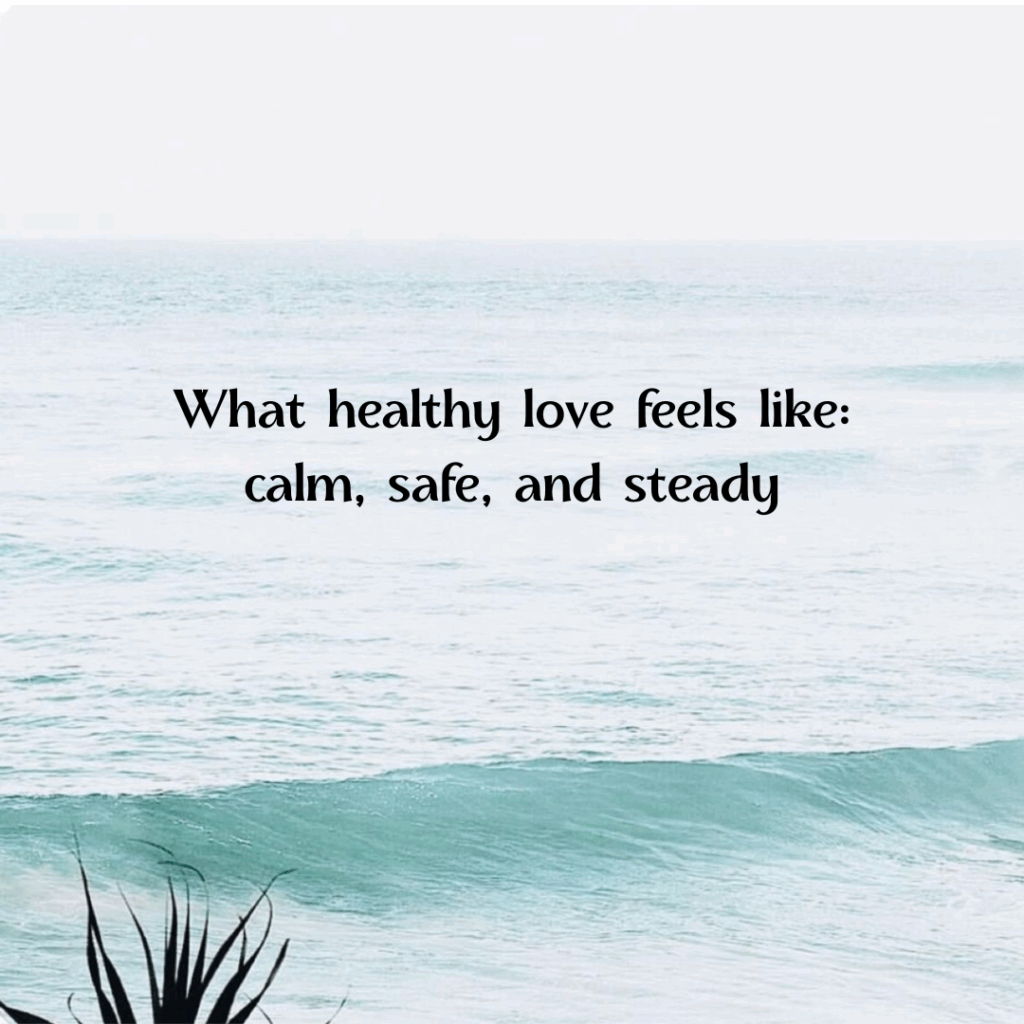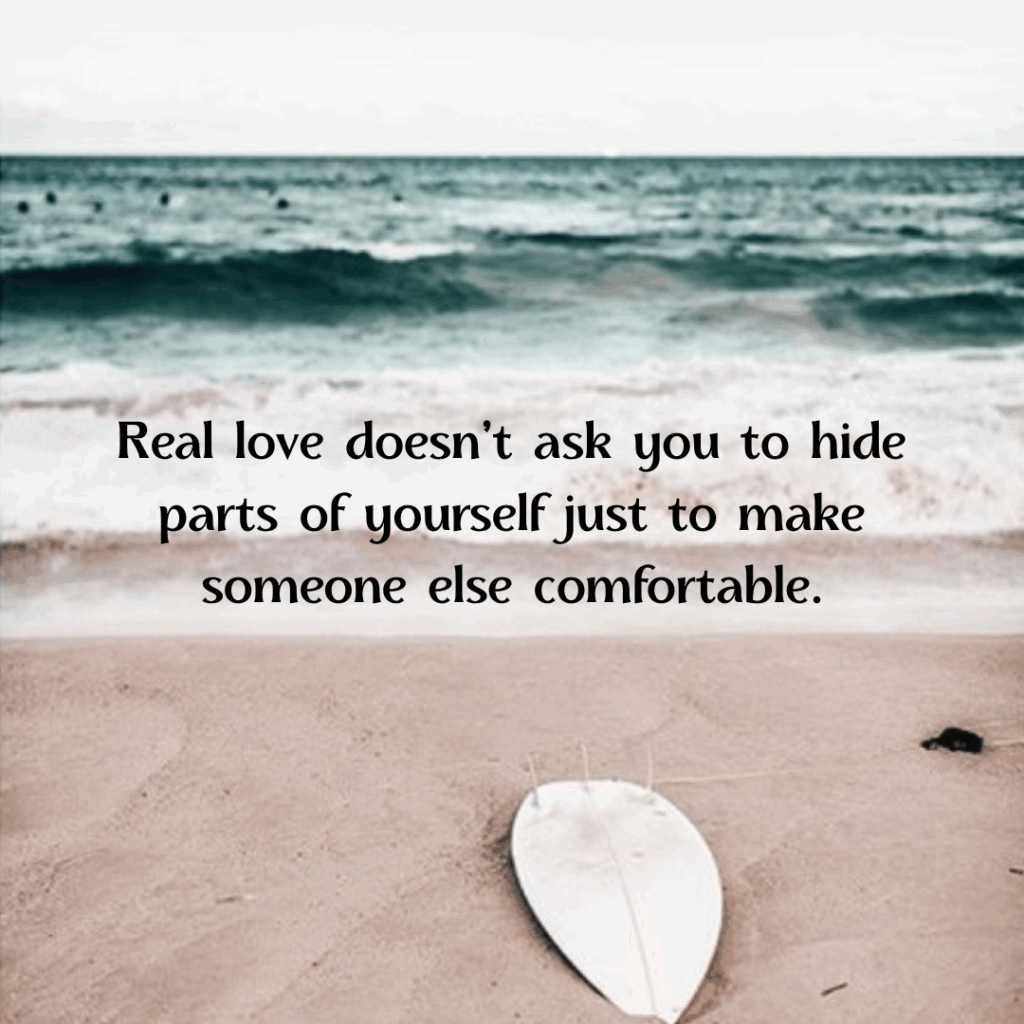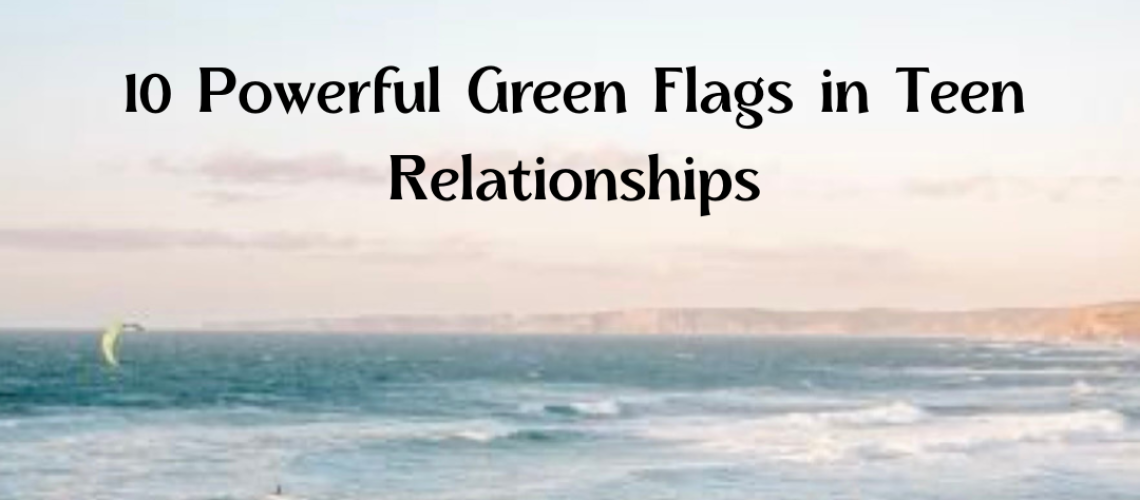Table of Contents Show
- Green Flags in Teen Relationships:
- Green Flag 1: They respect your boundaries
- Green Flag 2: They encourage your friendships
- Green Flag 3: They listen to understand.
- Green Flag 4: They celebrate your wins.
- Green Flag 5: They don’t play games with communication.
- Green Flag 6: They apologize when they mess up, and they mean it.
- Green Flag 7: They support your goals and independence.
- Green Flag 8: They respect your pace.
- Green Flag 9: They speak kindly about you, both to your face and behind your back.
- Green Flag 10: You feel more like yourself around them, not less.
Green flags in teen relationships matter just as much as red ones—but most of us were never taught what to look for.
I used to think a healthy relationship just meant there wasn’t yelling, cheating, or physical abuse.
If it was quiet, if no one was slamming doors or storming out, I thought that meant things were okay.
But I’ve learned that silence doesn’t always mean safety, and that “not being treated badly” isn’t the same as being treated well.
After I wrote about the red flags to watch for in teen relationships, I kept thinking about what comes next.
If you’re in a relationship and unsure how it’s going… or if you’re just trying to figure out what love is supposed to feel like—use this list. Come back to it. Talk about it with someone you trust. Recognizing green flags in teen relationships can help you build something healthy from the start, not just recover after something unhealthy.
Because it’s one thing to recognize what’s wrong. That’s why I wanted to write about green flags in teen relationships, not just what to avoid, but what to hope for.
But what does it look like when something’s right?
What are the signs of a relationship that’s actually healthy, not just “not toxic”?
It can be hard to trust calm when you’ve been hurt or manipulated or made to feel small. It can feel strange to be respected. Sometimes the peace of something safe feels unfamiliar, even boring.
But it’s not boring.
It’s grounding. It’s steady. It’s real.
And green flags aren’t always flashy, they often show up in the quiet moments, in how someone responds when things aren’t easy.
Healthy love doesn’t leave you guessing.
So here it is: 10 green flags in teen relationships.
The kinds of signs that show up when love is rooted in care, not control.
Green Flags in Teen Relationships:
Green Flag 1: They respect your boundaries
Whether it’s emotional, physical, or digital boundaries, your “no” is heard and honored without guilt or pressure.
Example: You say you don’t want to send a certain type of picture, and they drop it without pushing or making you feel bad.
I got used to being pushed past my limits, like my no didn’t really count. It took me a long time to realize that a healthy relationship doesn’t try to wear you down. Someone who truly cares will stop the first time you say you’re not comfortable.
Green Flag 2: They encourage your friendships
They don’t compete with the people who matter to you. They don’t make you feel guilty for having a life outside the relationship.
Example: Instead of getting moody or making passive comments, they genuinely want to hear about your day, how lunch with your best friend went, or what you laughed about with your sibling. They know you’re allowed to have joy outside of them.
For so long, I felt like I had to justify every friendship, like spending time with anyone else was somehow disloyal. But when I was finally in a healthy relationship, that pressure disappeared. I didn’t feel guilty for having people in my life. I could go to lunch with a friend or talk to someone after school without worrying it would turn into an argument later. That kind of freedom was new to me, and it mattered more than I expected.
Green Flag 3: They listen to understand.
You feel safe being open, and they care about what you’re saying, even when it’s something hard.
Example: When you talk about something that hurt you, they don’t jump in to defend themselves. They ask, “Do you want to talk more about that?”
For so long, I got used to being talked over, dismissed, or told I was too sensitive. I’d start to share something that mattered to me, and halfway through, I’d realize I was already bracing for the backlash, waiting for the eye roll, the sigh, or the twist that would somehow make it all my fault. So I stopped talking. I learned to hold it all in.
But when I was finally met with real listening, with someone who didn’t rush to fix it, defend themselves, or make it about them, it caught me completely off guard. They didn’t need me to explain it perfectly. They just stayed present. And that changed everything.
It was the first time I felt like my words weren’t too much. Like I wasn’t too much. And I’ll never forget how that felt.
Green Flag 4: They celebrate your wins.
Your success doesn’t trigger jealousy or competition, they’re genuinely happy for you.
Example: You make varsity or land the lead in the school play, and they’re hyping you up instead of saying, “Must be nice to have everything work out for you.”
This one gets overlooked way too often. But it matters more than most people realize.
When you’re in a healthy relationship, they’re not just okay with your accomplishments, they’re proud of them. They show up. They cheer you on. They post about your win before you do. And not because it benefits them or gets them attention, but because they genuinely believe in you.
I used to downplay my successes to avoid conflict. I learned to shrink good news to keep someone else from feeling insecure or distant. But real love doesn’t ask you to dim your light. It wants to see you shine.
Someone who celebrates your growth, your goals, your wins, big or small, is someone who wants to grow with you, not stand in your way.
Green Flag 5: They don’t play games with communication.
They text back, make plans, and follow through, no hot-and-cold, guilt trips, or silent treatment. You don’t feel like you have to decode their silence or overanalyze every word.
Example: They don’t just leave you hanging when they’re busy. Instead of disappearing, they send a quick message like, “Hey, I’m heading into practice. Can we talk later?” It’s simple, respectful, and it keeps the anxiety away.
Being ignored or shut out emotionally can be just as damaging as yelling. I remember what it felt like to stare at my phone for hours, convincing myself it wasn’t a big deal, even though the pit in my stomach said otherwise. I told myself they were just busy. That I was too needy. But the silence wasn’t accidental, it was control. And it worked.
When I was finally in a relationship where communication was consistent and clear, it felt like breathing again. No mind games. No second-guessing. Just steady, simple peace. And after everything I’d been through, that kind of peace meant more than I ever thought it would.
When you’re learning to spot green flags in teen relationships, it’s not just about the big gestures—it’s the quiet moments that matter too.

Green Flag 6: They apologize when they mess up, and they mean it.
They take responsibility without flipping the blame or making excuses.
Example: Instead of brushing it off or turning it back on you, they say, “I was wrong to cancel at the last minute. I should’ve told you sooner, and I’m really sorry.” Not, “You’re overreacting” or “You’re too sensitive.”
I didn’t realize how much I’d gotten used to fake apologies, ones that ended with “but you…” or made me feel like the problem. I started expecting every apology to come with a side of shame.
So the first time someone just owned it, fully and sincerely, I didn’t know what to do. I cried. Not because of what they said, but because they didn’t twist it. They didn’t need me to take the blame with them. And in that moment, I felt something I hadn’t felt in a long time: emotional safety. The kind that tells you, you’re not too much to love, even when things get hard.
Green Flag 7: They support your goals and independence.
They don’t make you feel guilty for having your own dreams, interests, or future plans.
Example: They cheer you on when you want to join a new club or take a hard class, even if it means less time together. They’re proud of you for doing what lights you up, not insecure about it.
In unhealthy relationships, I was made to feel like everything I cared about was somehow a problem. My goals, my interests, even the way I talked about the future, it all had to shrink to keep the peace. I learned to stop dreaming out loud. I convinced myself that small was safe.
But when someone finally said, “I love how passionate you are,” or “You should absolutely go for that,” something in me shifted. It wasn’t just about the words. It was about how free I felt to be myself again.
Healthy love doesn’t compete with your future. It celebrates it. It’s not scared of your growth, it wants to grow with you.
Green Flag 8: They respect your pace.
They never push you into anything, physically, emotionally, or socially. They let the relationship grow naturally.
Example: You say you’re not ready to say “I love you” or go further physically, and they respond with, “That’s totally okay. I care about you no matter what.” There’s no pressure, no guilt, no silence used as punishment.
I used to think love came with pressure, that it was normal to feel like I had to catch up, to prove something, to keep someone happy by saying yes even when I didn’t feel ready. But that wasn’t love. That was fear, dressed up like closeness. Even saying something small—like “I’m not ready to hold hands in public”—felt risky. I worried it would change everything.
The first time someone didn’t flinch at my no, I held my breath waiting for the fallout. But it never came. Instead, they made space for me. They didn’t push, didn’t flinch, didn’t punish me with silence. They stayed. And in that space, I learned what real trust feels like: quiet, calm, patient, and completely okay with where I was. Reading about green flags in teen relationships is one thing, experiencing them is another. But this list can help you recognize the difference between real love and just empty words.
Every time you say, “I’m not ready,” and they say, “Okay,” it tells you that your comfort matters.
Green Flag 9: They speak kindly about you, both to your face and behind your back.
You never have to wonder how they talk about you when you’re not around. Their respect doesn’t change depending on who’s listening.
Example: Your friends mention that your partner talks about how kind, funny, or strong you are, even when you’re not there. You hear the compliments secondhand, not just when it’s convenient or performative.
This one snuck up on me. I was used to the kind of love that felt performative in public but critical in private. The kind that complimented me in front of others but picked me apart later when no one else was listening.
So when someone started showing me real, steady kindness, words that matched their actions, words they repeated even when I wasn’t there to hear them, I almost didn’t know what to do with it. It felt foreign at first. But also… healing.
And that’s how I knew. When someone respects you in rooms you’re not even in, that’s love you don’t have to chase. That’s love you can trust.

Green Flag 10: You feel more like yourself around them, not less.
You don’t feel like you have to change who you are just to keep them around. Being with them feels easy, comfortable, even when you’re not trying to be perfect.
Example: You laugh more. You speak up. You don’t feel like you have to act a certain way or play a role just to keep their attention.
I spent a long time trying to be the “right” version of myself in a relationship, quieter, easier, smaller. I thought if I could just be less emotional, less opinionated, more agreeable… then maybe I’d be enough.
But I’ve learned that real love doesn’t ask you to hide parts of yourself just to make someone else comfortable. It doesn’t make you feel like you’re too much or not enough. It invites you to be fully you, the silly parts, the serious parts, the strong and vulnerable parts.
When you’re with someone healthy, you don’t feel like you’re performing. You feel at ease in your own skin. You feel seen. And for maybe the first time, you realize that you were never “too much” to begin with.
With the right person, you don’t feel like you have to earn their love. You just get to be you.
Reading about green flags in teen relationships is one thing—experiencing them is another. But this list can help you recognize the difference between real love and just empty words.
I didn’t grow up hearing about red or green flags. The only things I really knew were that cheating was wrong and hitting was wrong. That was it. No one talked to me about emotional safety or manipulation or how to spot the signs of a healthy relationship. No one told me that being ignored was a red flag, too. That walking on eggshells wasn’t normal. That love that feels calm and kind is still love.
I had to learn all of this the hard way. And if you’re just starting to figure this out, no matter where you are in life, I want you to hear this: You’re not late. You’re not broken. You’re learning what you were never taught. And that matters.
You deserve love that lets you breathe. That lets you grow. That feels like home, not a test you keep failing.
Learning to recognize green flags in teen relationships is one of the most powerful things you can do for your future, because once you know what healthy looks like, you’ll never settle for less.
No one will get all of this right, all the time. But in a healthy relationship, these are the patterns that show up more often than not. The tone. The effort. The respect. And once you experience that kind of love, you’ll never want to settle for anything less again.
If this helped you understand what green flags in teen relationships really look like, I hope you’ll share it with someone you love, or with the version of you who needed it years ago.
And if you want to go deeper, I also wrote about 10 red flags in teen relationships that are often overlooked but just as important. Together, they tell the whole story.



